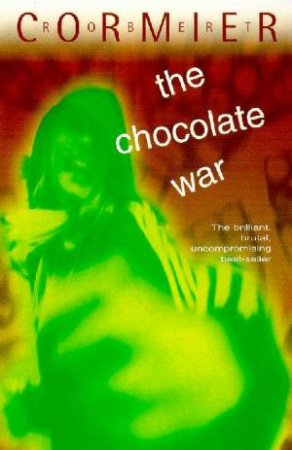

He won a number of awards for his human interest column (published under the byline John Fitch IV), and a volume of autobiographical essays, edited by his wife- I Have Words To Spend: Reflections of A Small-Town Editor(1991)-helps to explain the relationship between the upbeat realism of his journalistic work and the cynicism of his imaginative fiction. He gave up full-time journalism in 1966 to concentrate on novel-writing, but continued to work as a columnist and associate editor for the Sentinel. He then worked at the Worcester Telegraph & Gazette and, for a longer period, the Fitchburg Sentinel.

After attending Fitchburg State College, he began a career in journalism, first with the radio station WTAG (1946-48). Robert Cormier was born January 17,1925, in Leominster, Massachusetts, and has lived in the town for most of his life. The face of such power structures and, by implication, the importance of collective action. One of The Chocolate War's principle themes is the futility of individual protests and resistance in What makes it disturbing is the collusion between the Catholic teaching staff and a group of boys known as the Vigils who exert a Mafia-like influence at the school and employ psychological tactics against other pupils and staff. If the novel had been simply about harassment and intimidation among a group of boys, it would not have been in any way remarkable. When his son decided, without repercussion, not to sell chocolates in his school's annual sale, Cormier asked himself, "What if?" This question, he has declared, is the spark for all his writing. The plot for The Chocolate War was inspired by an event in Cormier's own life. (Cormier had resisted pressure from a number of publishers to alter the ending.) Shocking in its relentless and unsentimental representation of the power and control exerted by bullying adults and boys at a Catholic school, the novel was criticized by some early reviewers for its failure to include for its young readers a redeeming resolution. Nevertheless, it quickly became both an inspiration to other writers and publishers for teens and the standard by which much subsequent young adult literature has been judged.

Robert Cormier's novel was originally conceived as an adult book, for all his previous fiction had been for adults.

The publication of The Chocolate War in 1974 is now seen as a ground-breaking event in the establishment of young adult literature as a separate genre.


 0 kommentar(er)
0 kommentar(er)
